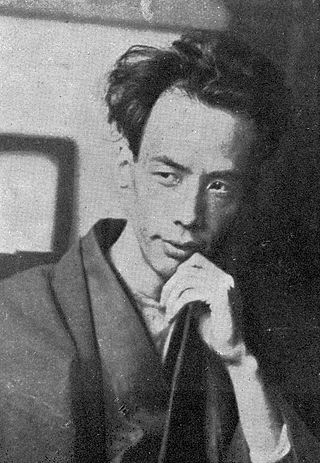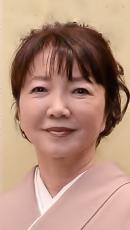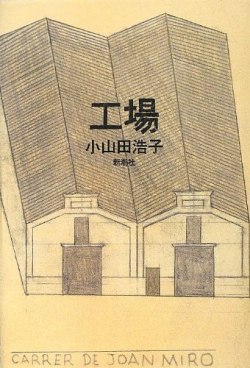
The Akutagawa Prize is a Japanese literary award presented biannually. Because of its prestige and the considerable attention the winner receives from the media, it is, along with the Naoki Prize, one of Japan's most sought after literary prizes.
Hitomi Kanehara is a Japanese novelist. Her novel Hebi ni piasu won the Shōsetsu Subaru Literary Prize and the Akutagawa Prize, and sold over a million copies in Japan. Her work has been translated into more than a dozen languages worldwide.
Akiko Itoyama is a Japanese novelist. She has won the Akutagawa Prize, the Kawabata Yasunari Prize, and the Tanizaki Prize, and her work has been adapted for film.

Nobuko Takagi is the professional name of Nobuko Tsuruta, a Japanese author. She has won the Akutagawa Prize and the Tanizaki Prize, she has been named a Person of Cultural Merit, and her work has been adapted for film.
Michiko Yamamoto is the professional name of Michiko Furuya, a Japanese writer and poet. Yamamoto has won the Shincho Prize for New Writers, the Akutagawa Prize, and the Izumi Kyoka Prize for Literature.
Nanae Aoyama is a Japanese fiction writer. She has won the Akutagawa Prize, the Bungei Prize, and the Yasunari Kawabata Literary Prize. Her work has been translated into Chinese, Korean, Vietnamese, German, French, English, Italian and Polish.
Tomoko Yoshida is a Japanese writer. She has won the Akutagawa Prize, the Izumi Kyōka Prize for Literature, the Women's Literature Prize, and the Kawabata Yasunari Literature Prize.
Mariko Asabuki is a Japanese writer. Her novels have won the Akutagawa Prize and the Bunkamura Deux Magots Prize, and she was named one of Vogue Japan's 2011 Women of the Year.
Kikuko Tsumura is a Japanese writer from Osaka. She has won numerous Japanese literary awards, including the Akutagawa Prize, the Noma Literary New Face Prize, the Dazai Osamu Prize, the Kawabata Yasunari Prize, and the Oda Sakunosuke Prize.
Yukiko Motoya is a Japanese novelist, playwright, theatre director, and former voice actress. She has won numerous Japanese literary and dramatic awards, including the Akutagawa Prize, the Noma Literary New Face Prize, the Mishima Yukio Prize, the Kenzaburo Oe Prize, the Kishida Kunio Drama Award, and the Tsuruya Nanboku Drama Award. Her work has been adapted multiple times for film.
Akiko Akazome, born Akiko Seino, was a Japanese writer. Akazome won the 143rd Akutagawa Prize and the 99th Bungakukai Prize before her death in 2017.
Yuka Ishii is a Japanese writer. Her book Hyakunen doro won the 154th Akutagawa Prize and the 49th Shincho Prize for New Writers.
Kaori Fujino is a Japanese writer from Kyoto. Her work has won the 103rd Bungakukai Prize and the 149th Akutagawa Prize.
Natsuko Kuroda is a Japanese writer. At age 75 she won the 148th Akutagawa Prize, making Kuroda the oldest winner in the history of the prize.
Maki Kashimada is a Japanese writer. She has won the Bungei Prize, the Mishima Yukio Prize, the Noma Literary Prize, and the Akutagawa Prize.
Natsuko Imamura is a Japanese writer. She has been nominated three times for the Akutagawa Prize, and won the prize in 2019. She has also won the Dazai Osamu Prize, the Mishima Yukio Prize, the Kawai Hayao Story Prize, and the Noma Literary New Face Prize.
Natsuki Koyata is a Japanese writer. She has won the Mishima Yukio Prize, the Japan Fantasy Novel Award, and the Oda Sakunosuke Prize.
Kiyoko Murata is a Japanese writer. She has won the Akutagawa Prize, the Noma Literary Prize, and the Yomiuri Prize, among other literary prizes. The Government of Japan has awarded her the Medal with Purple Ribbon and Order of the Rising Sun, and she has been appointed to the Japan Art Academy. Her work has been adapted for film by Akira Kurosawa and Hideo Onchi.
Haneko Takayama is a Japanese writer. She has won the Akutagawa Prize and the Fumiko Hayashi Literary Prize, and her work has been nominated for the Nihon SF Taisho Award.

The Factory is a proletarian novella written by Japanese author Hiroko Oyamada. Originally written and published in Japan in 2013 by Shinchosha Publishing Co., the book was translated into English by David Boyd and published in 2019 by New Directions Publishing Corporation. The uniquely structured novella switches between the perspectives of three characters as they begin jobs at a joint living and working facility known as "the factory."



